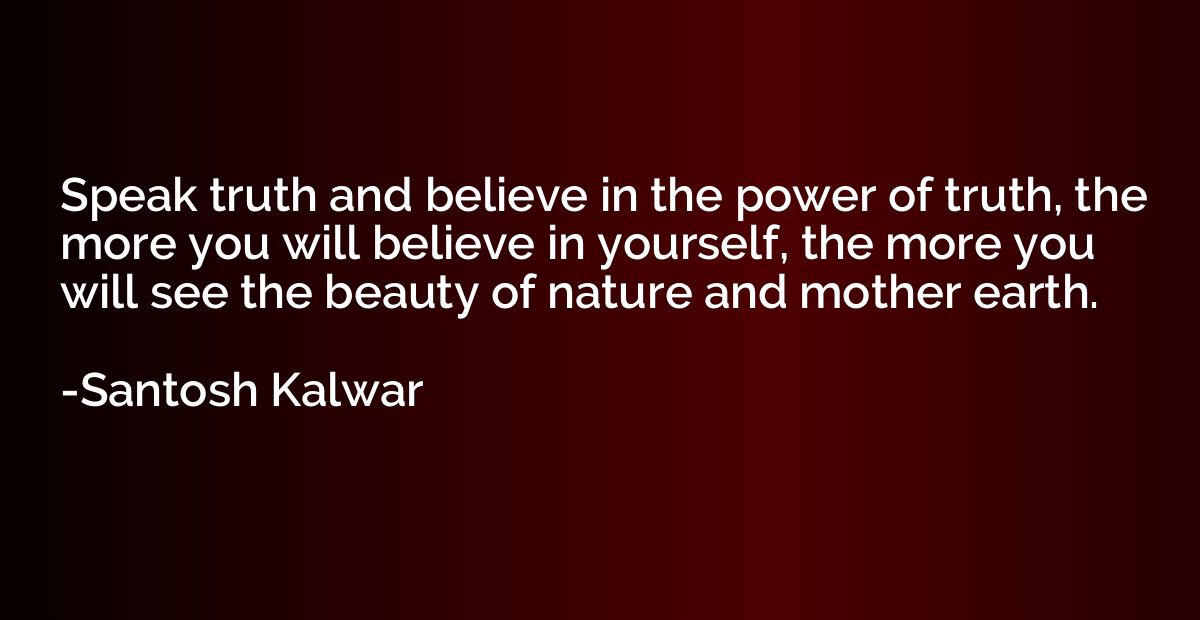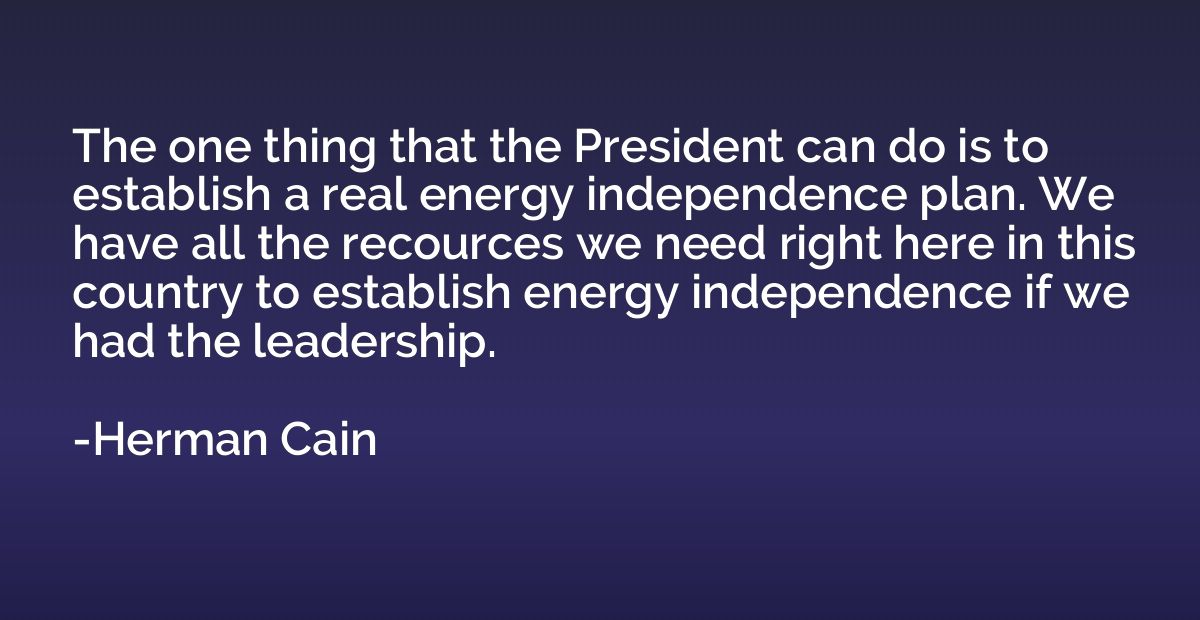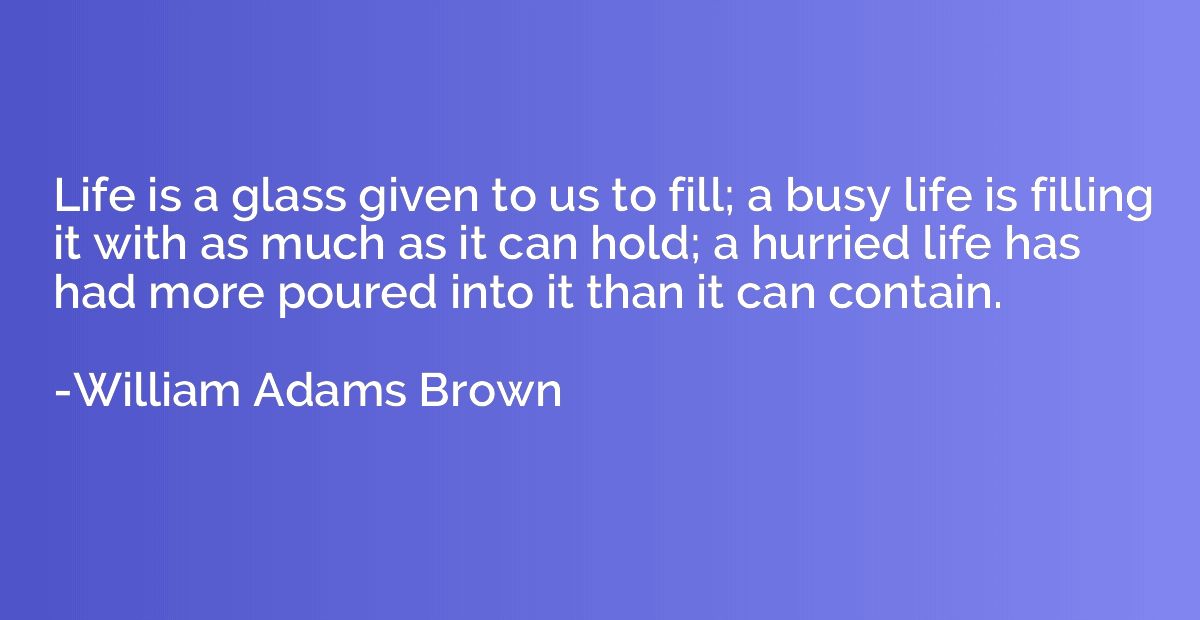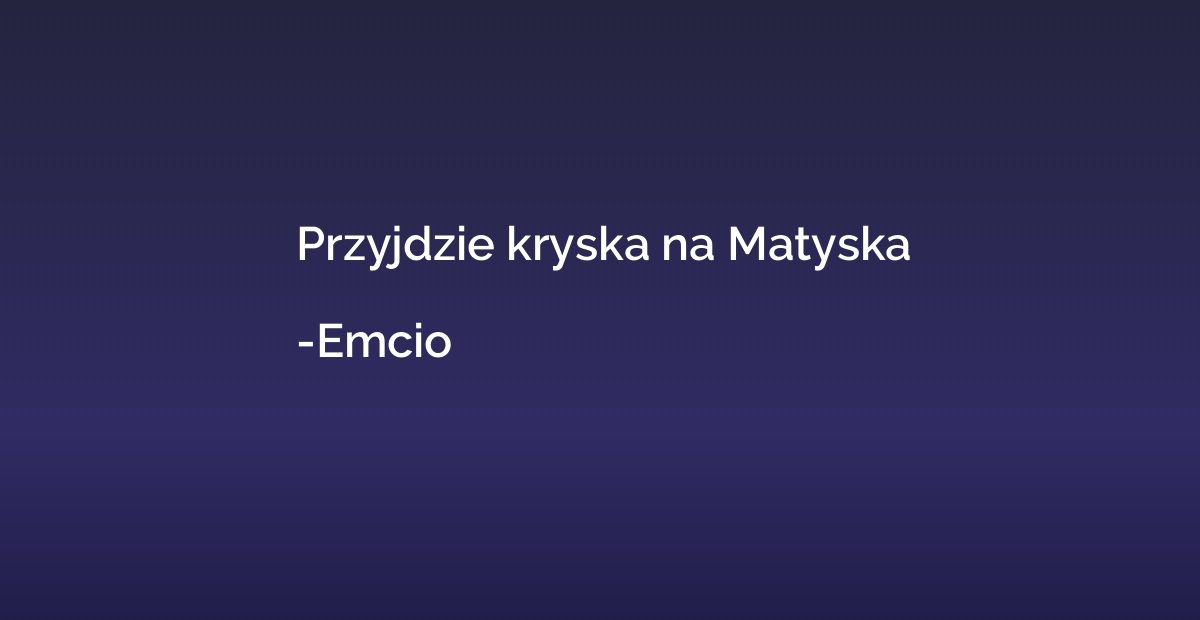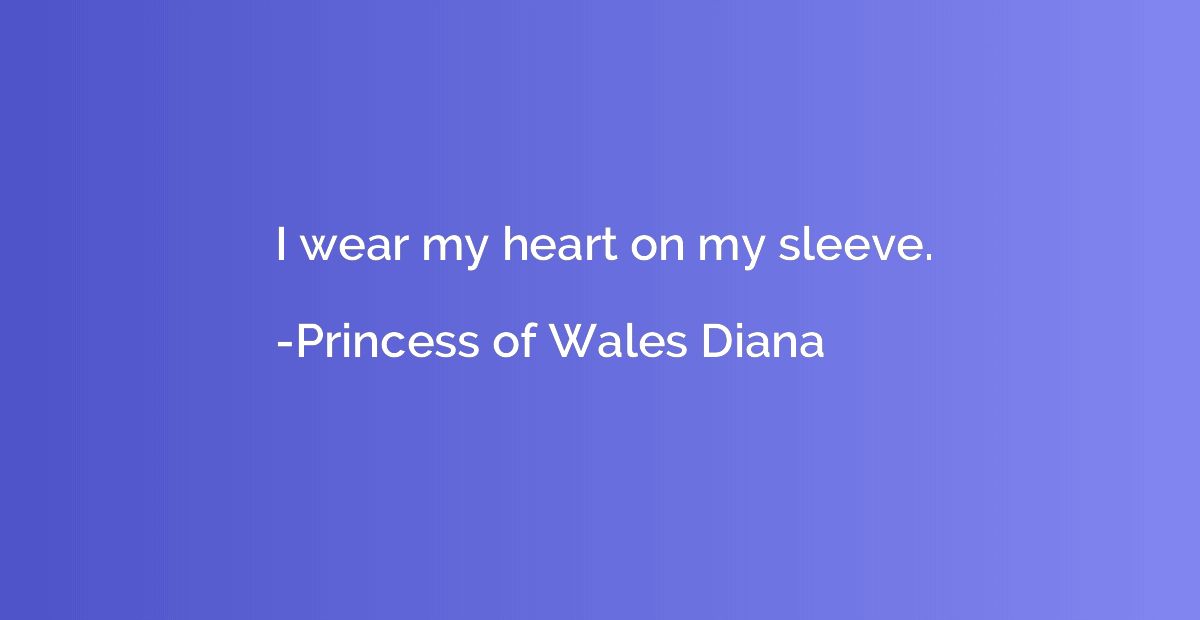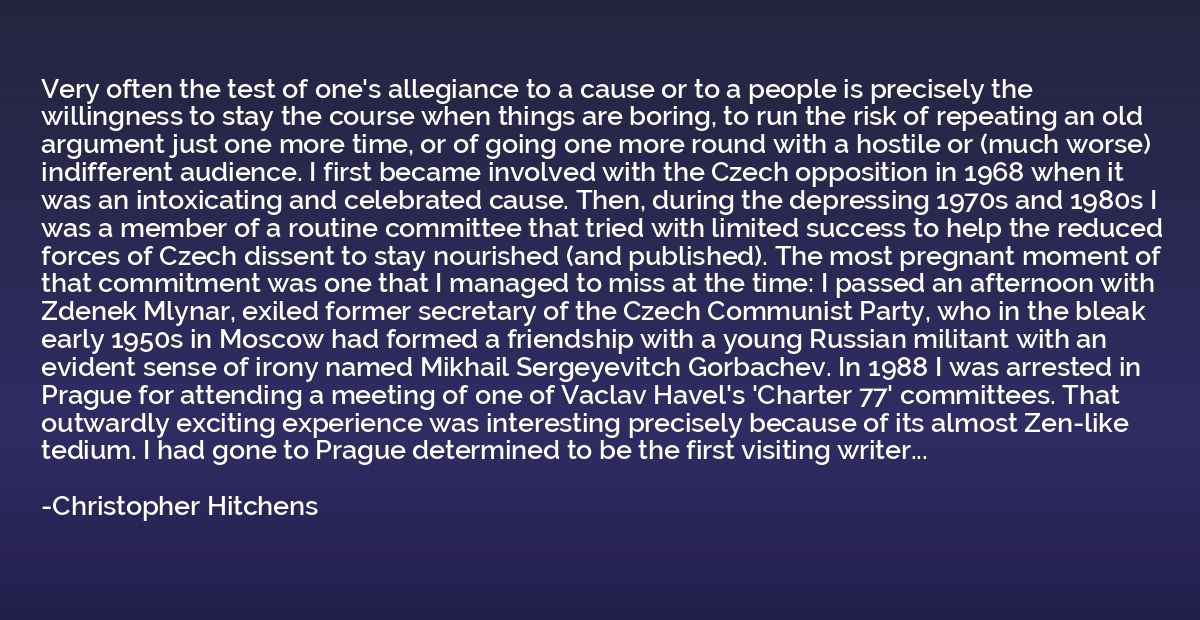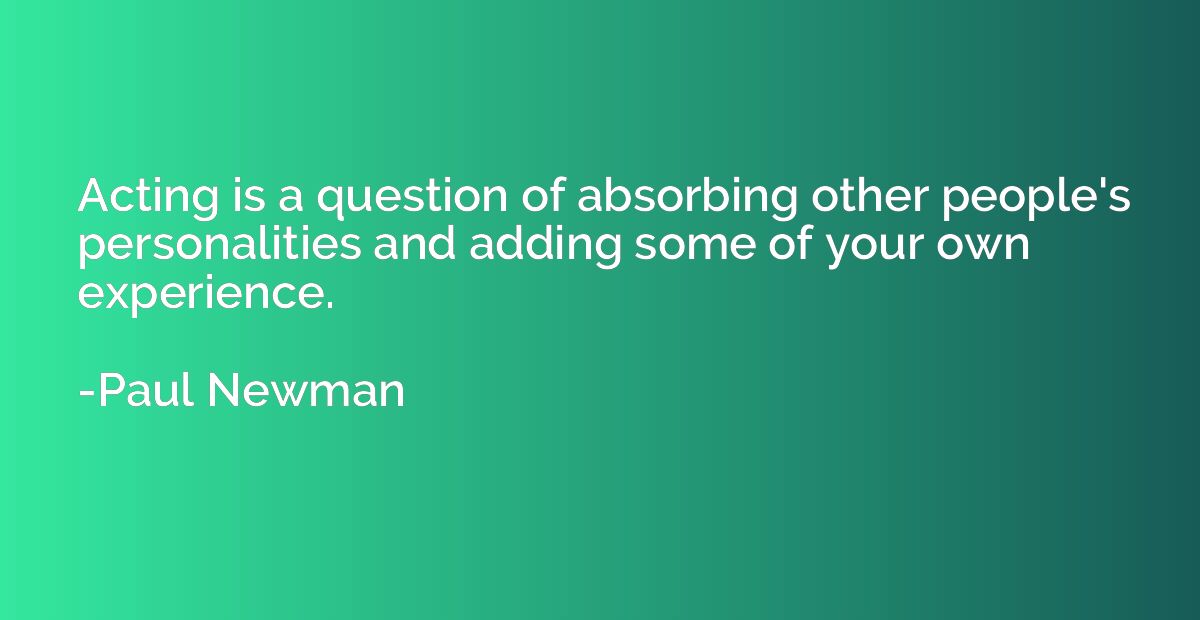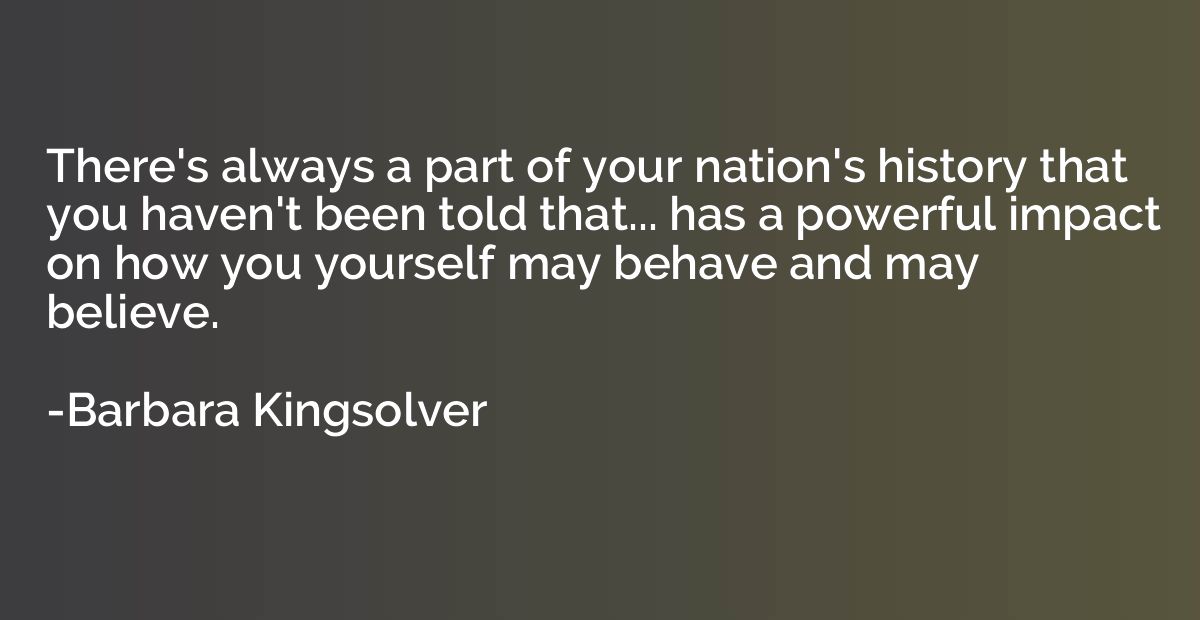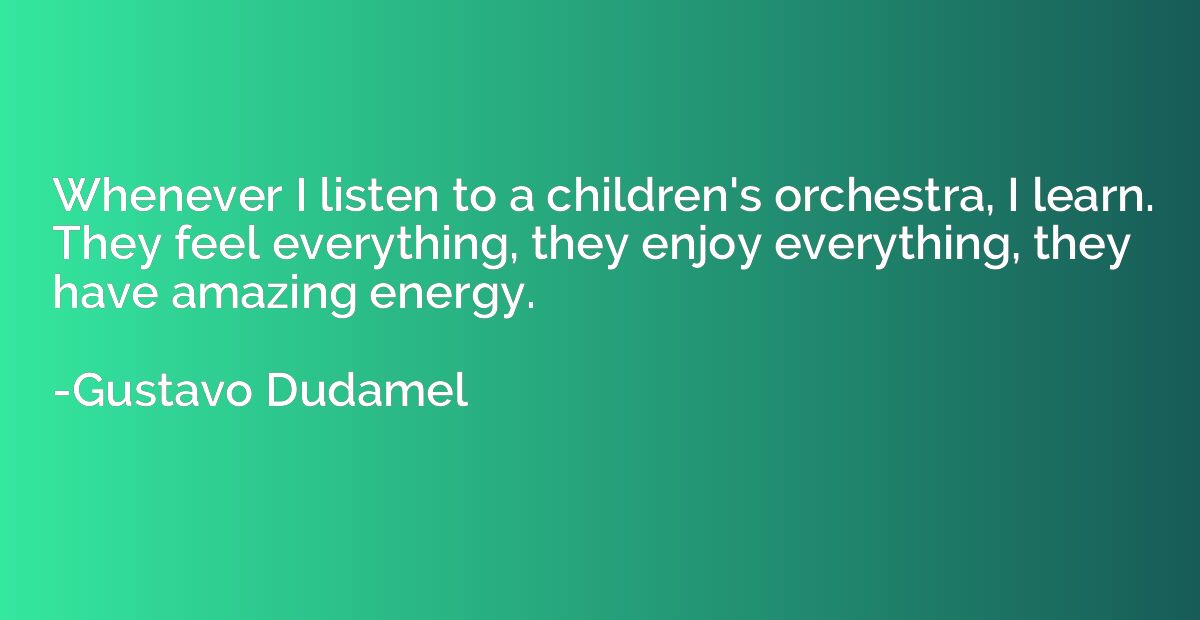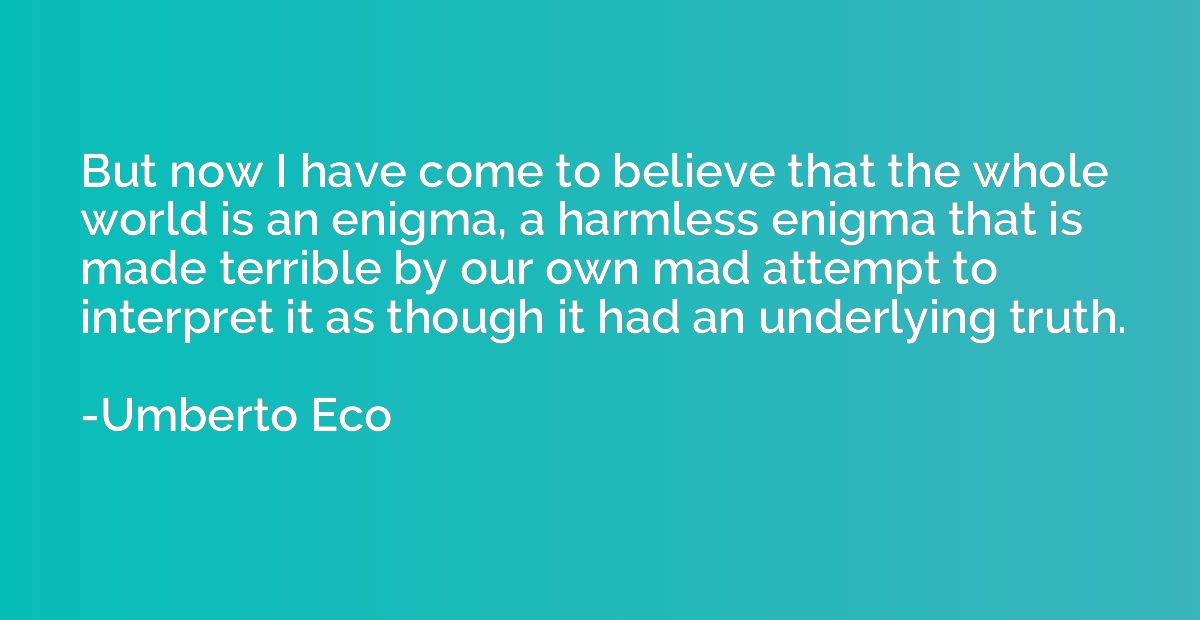Quote by Vince Lombardi
I firmly believe that any man's finest hour, the greatest fulfillment of all that he holds dear, is that moment when he has worked his heart out in a good cause and lies exhausted on the field of battle - victorious.
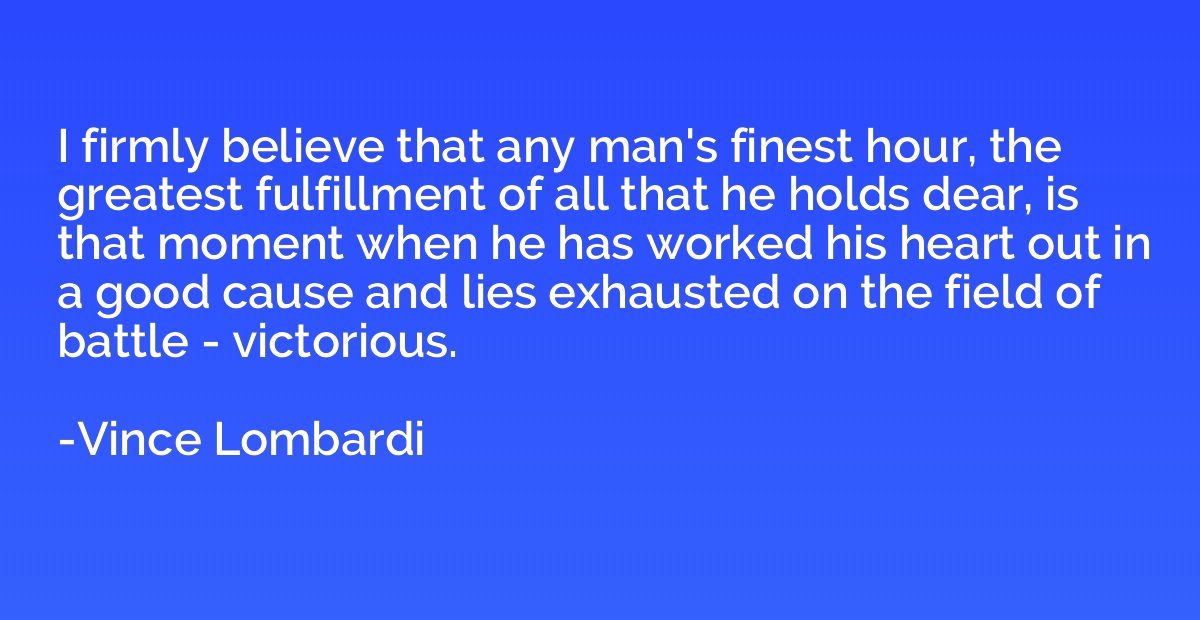
Summary
This quote suggests that the ultimate sense of accomplishment and contentment for a person is achieved when they have invested immense effort and dedication into a noble undertaking and find themselves completely drained yet triumphant at the end of it. It argues that the moment of complete exhaustion and victory in a battle - whether literal or metaphorical - represents the highest peak in one's lifetime, symbolizing the realization of personal values and aspirations. It emphasizes the importance of pursuing meaningful endeavors and giving everything one has to succeed, bringing forth a profound sense of fulfillment.



